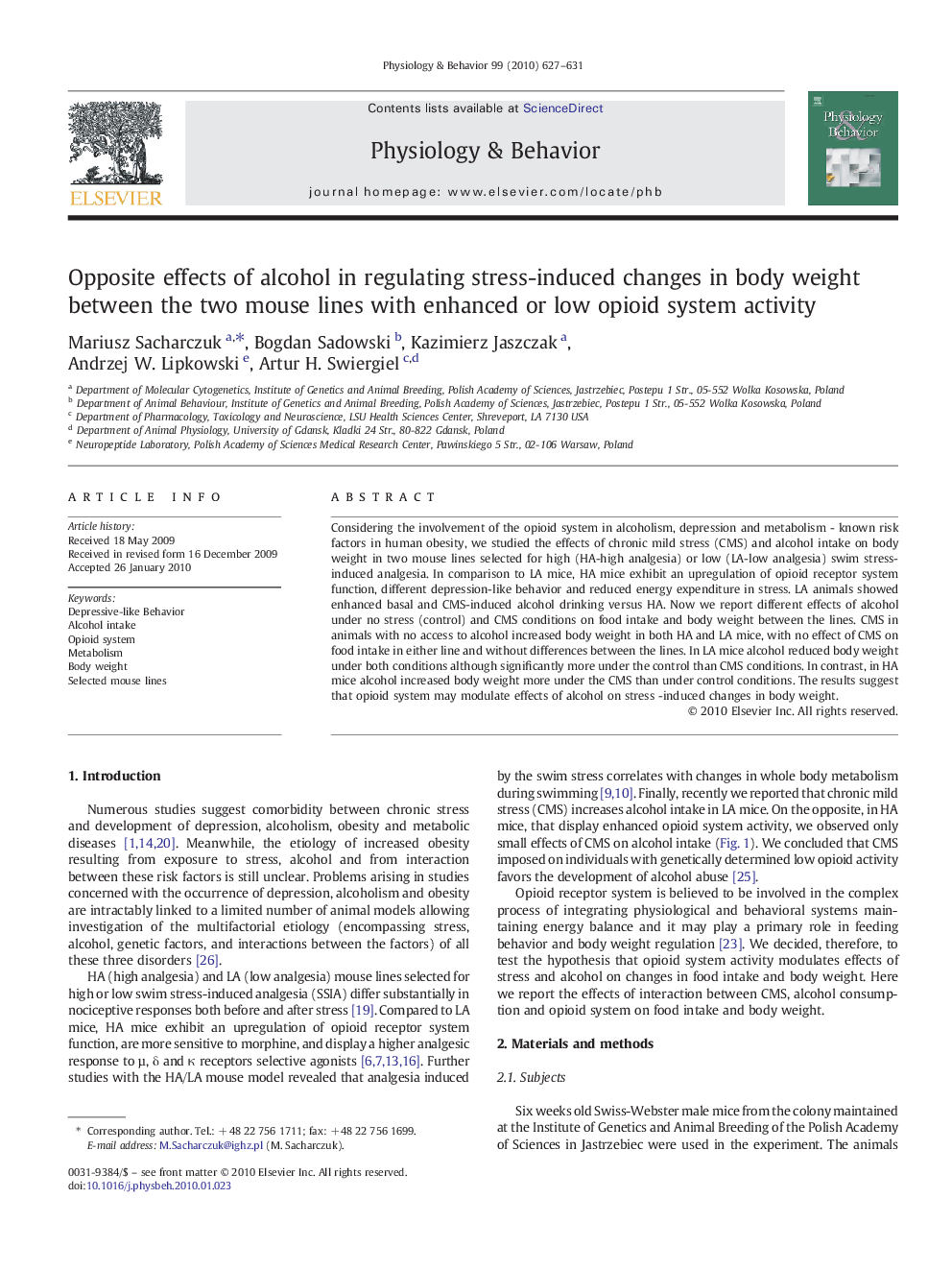| Article ID | Journal | Published Year | Pages | File Type |
|---|---|---|---|---|
| 2844961 | Physiology & Behavior | 2010 | 5 Pages |
Considering the involvement of the opioid system in alcoholism, depression and metabolism - known risk factors in human obesity, we studied the effects of chronic mild stress (CMS) and alcohol intake on body weight in two mouse lines selected for high (HA-high analgesia) or low (LA-low analgesia) swim stress-induced analgesia. In comparison to LA mice, HA mice exhibit an upregulation of opioid receptor system function, different depression-like behavior and reduced energy expenditure in stress. LA animals showed enhanced basal and CMS-induced alcohol drinking versus HA. Now we report different effects of alcohol under no stress (control) and CMS conditions on food intake and body weight between the lines. CMS in animals with no access to alcohol increased body weight in both HA and LA mice, with no effect of CMS on food intake in either line and without differences between the lines. In LA mice alcohol reduced body weight under both conditions although significantly more under the control than CMS conditions. In contrast, in HA mice alcohol increased body weight more under the CMS than under control conditions. The results suggest that opioid system may modulate effects of alcohol on stress -induced changes in body weight.
